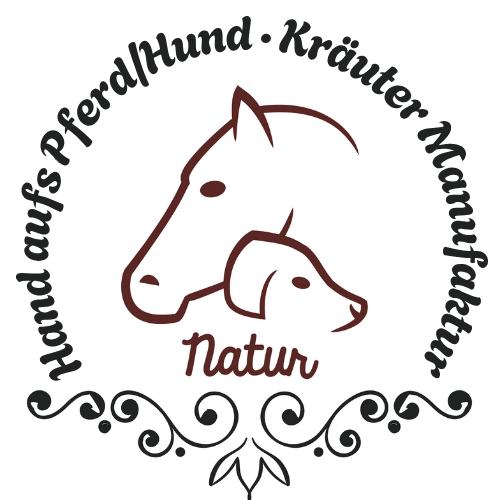
Heartburn in dogs - causes, symptoms
Heartburn in dogs: causes, symptoms and support options
Heartburn is an unpleasant symptom that can occur not only in humans but also in dogs. It occurs when stomach acid backs up into the esophagus, causing irritation. This problem can have various causes in dogs and often leads to discomfort that can impair your four-legged friend's quality of life. In this article, you'll learn what causes heartburn in dogs, how it's diagnosed, and what supportive measures can help.
What is heartburn in dogs?
Heartburn, also known as reflux disease or gastroesophageal reflux disease (GERD), occurs when stomach acid overcomes the stomach's natural defenses and enters the esophagus. In dogs, this can cause inflammation and irritation, resulting in familiar symptoms such as burping , a sour mouth, or discomfort .
Main causes of heartburn in dogs:
-
Incorrect diet : Food that is too high in fat or difficult to digest can stimulate stomach acid production and thus increase the risk of heartburn.
-
Fast eating : Dogs that eat their food in a hurry often have problems with digestion, which can increase the likelihood of reflux.
-
Obesity : A high percentage of body fat can put pressure on the stomach and promote the reflux of stomach acid.
-
Medications : Some medications prescribed by veterinarians can irritate the gastrointestinal tract and cause heartburn as a side effect.
Symptoms of heartburn in dogs
Heartburn in dogs can be subtle and is often confused with other health problems. The most common symptoms include:
-
Vomiting : Especially after eating, often with bile or unpleasant smelling contents.
-
Sour mouth odor : A sour smell from the mouth can be an indication of reflux.
-
Licking and smacking : Dogs with heartburn often lick and smacking excessively in an attempt to relieve the unpleasant sensation.
-
Loss of appetite : A dog with heartburn may refuse food or eat only hesitantly.
-
Pain or Discomfort : Dogs may show discomfort when pressing on their stomach or bending over.
How is heartburn diagnosed in dogs?
Heartburn in dogs is usually diagnosed by a veterinarian. They may perform a clinical examination and assess the condition of the digestive tract. In some cases, additional tests, such as blood tests , ultrasound , or x-rays , may be necessary to determine the cause of heartburn and rule out other conditions.
Support options for heartburn in dogs
Although heartburn in dogs is often incurable, dietary changes and natural remedies can help relieve symptoms and improve your dog's well-being.
-
Dietary change :
- Smaller meals : Instead of feeding one large meal, it can help to offer your dog several smaller meals throughout the day. This reduces pressure on the stomach and prevents excessive stomach acid production.
- Light food : Easily digestible foods such as chicken , rice or special diet foods for dogs with stomach problems can facilitate digestion and relieve the stomach.
-
Herbal support :
Gentle herbs for your dog's stomach and liver
- Some select herbs, such as chamomile and ginger, are traditionally valued for their calming properties and can help support a balanced digestive tract. They can be used in the form of teas or as a supplement to daily diets—for example, in our Stomach Herbs Sunrise .
Special liver herbs are also often used to support natural liver function and digestion on a plant-based basis – and can thus contribute to general well-being.
-
Avoiding stress :
Stress can worsen heartburn. Make sure to provide your dog with a stress-free environment and avoid hectic activity, especially after meals. -
Weight management :
Obesity is a common risk factor for heartburn. A balanced diet and regular exercise can help regulate your dog's body weight and reduce pressure on the stomach.
FAQ: Frequently asked questions about heartburn in dogs
1. What are the main causes of heartburn in dogs?
The main causes of heartburn in dogs are poor diet, overeating, obesity, and certain medications. The dog's age can also play a role, as older dogs are more prone to gastrointestinal problems.
2. How can I recognize heartburn in my dog?
Dogs with heartburn often exhibit symptoms such as vomiting after eating, loss of appetite, a sour mouth, and frequent smacking or licking. A veterinarian can help establish an accurate diagnosis.
3. Can heartburn in dogs be treated?
Heartburn can be helped by changing your diet , using herbal remedies , and avoiding stressful situations . A complete cure isn't possible in many cases, but symptoms can be alleviated through these measures.
4. Should I see a vet if I suspect heartburn?
Yes, it's always advisable to consult a veterinarian if you suspect your dog is suffering from heartburn or other digestive problems. The veterinarian can determine the cause and recommend appropriate treatment or support.
5. Can I give my dog herbal remedies for heartburn?
Some herbs, such as chamomile or ginger, can have a soothing effect on the digestive tract. However, always consult a veterinarian before giving your dog herbal remedies to ensure they are safe and suitable.
Heartburn support for your dog
Heartburn in dogs is a common but often overlooked condition. Through a tailored diet, herbal support, and a stress-free environment, you can help your dog feel better. However, if symptoms persist, you should always consult a veterinarian to determine the exact cause and ensure appropriate treatment.
Remember that early diagnosis and support can significantly improve your dog's well-being!
Source: Martina Hemm July 2025



